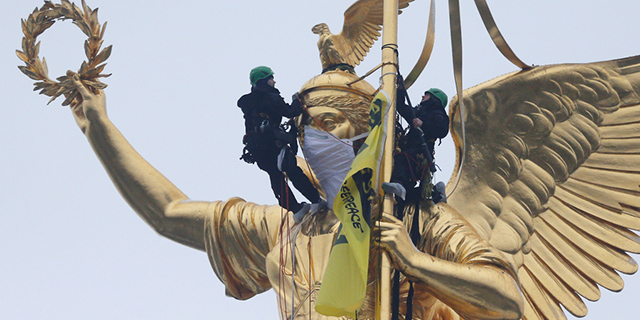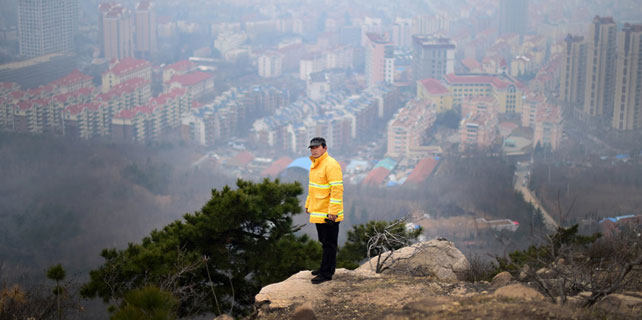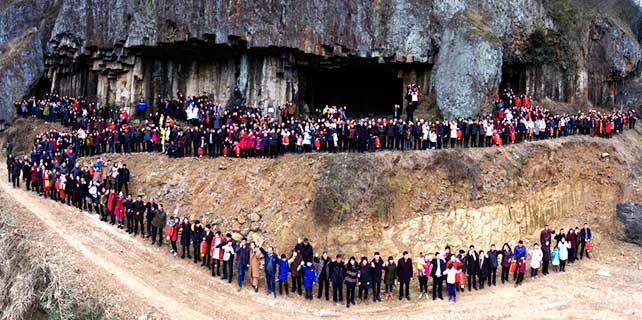Israel's parliament okays law legalizing Jewish outposts in West Bank
 |
|
A Palestinian woman holding her baby stands behind a fence as she waits for a travel permit to cross into Egypt through the Rafah border crossing after it was opened by Egyptian authorities for humanitarian cases, in Rafah in the southern Gaza Strip January 29, 2017. [Photo/Agencies] |
JERUSALEM - Israel's parliament passed Monday a controversial law to retroactively legalize wildcat Jewish outposts built on private Palestinian lands, despite international condemnations and warnings that the law is unconstitutional.
In a late-night session, the Knesset (parliament) approved the so-called "Regulation Bill" in a 60-52 vote.
Under the new legislation, about 3,850 housing units in dozens of outposts built illegally on privately owned Palestinian lands would be retroactively legalized.
The State of Israel would seize the lands, offering compensations or alternative land to the landowners, even if they do not agree to waive their property.
The outposts were erected by ultra-right settlers without permits from the Israeli authorities but the governments often have turned a blind eye to their construction.
There are additional 120 settlements that Israel considered as legal.
Both outposts and settlements are illegal under international law as they were built on lands occupied by Israel in the 1967 Mideast War, where the Palestinians wish to build their future state.
Earlier on Monday, Prime Minister Benjamin Netanyahu told reporters in London that he will vote in favor of the law immediately upon landing in Israel after meeting British Prime Minister Theresa May. But his flight was postponed due to late meetings with British officials, according to his spokesperson, and the vote was held in his absence.
The act was approved a week after the White House issued a statement with a reserved criticism of a recent surge of construction permits to thousands of housing units in the settlements.
The vote was held although the White House has reportedly asked Netanyahu to delay it. According to a report on Israel's Channel 2 TV news, the administration told Netanyahu to postpone the move until after he met US President Donald Trump in Washington on Feb 15.
The Prime Minister's Office would not confirm the report but Netanyahu told reporters in London that he has "updated" Trump about the expected vote.
Netanyahu's nationalist coalition partners, predominantly the pro-settler faction of the Jewish Home, pressured hard to move forwards with the legislation in the wake of the court-ordered evacuation of the illegal outpost of Amona last week.
Betzalel Smotrich, a lawmaker with the Jewish Home, hailed the "historic" vote. "Today, the State of Israel determined that the development of the settlement is an Israeli interest," he said in a statement.
He stated that the next step would be to "declare Israeli sovereignty over" the entire West Bank.
The opposition leader, Isaac Herzog, addressed the Knesset plenum ahead of the vote, calling on the lawmakers to reject the bill.
"This bill is de-facto annexation," he said. "We have just a few more moments to stop this terrible train before it leaves here and stops at The Hague," he said.
Also before the vote, United Nations Special Coordinator for the Middle East Peace Process Nickolay Mladenov warned that the law "will have far-reaching legal consequences for Israel and greatly diminish the prospects for Arab-Israeli peace."
Immediately after the vote, Peace Now and Yesh Din, two Israel-based human rights organizations, said they intend to petition the Supreme Court to cancel the law.
Yesh Din said in a statement that the law is "an unlawful, immoral law sanctioning landgrab and rewarding thievery," adding that it constitutes a "fundamental violation of the right to property."
"Given the Knesset's lack of authority to legislate upon the West Bank, the landowners' struggle will continue in court," the group said.
Last week, the government's Attorney General Avichai Mandelblit, said that the law might be unconstitutional and he would not be able to defend it in the Supreme Court.
He warned the new legislation might expose Israeli officials to prosecutions in the International Criminal Court.
In a highly unusual move, Ayelet Shaked, minister of justice and a lawmaker with the Jewish Home, announced that the government would hire a private lawyer to represent it in the Supreme Court.
















